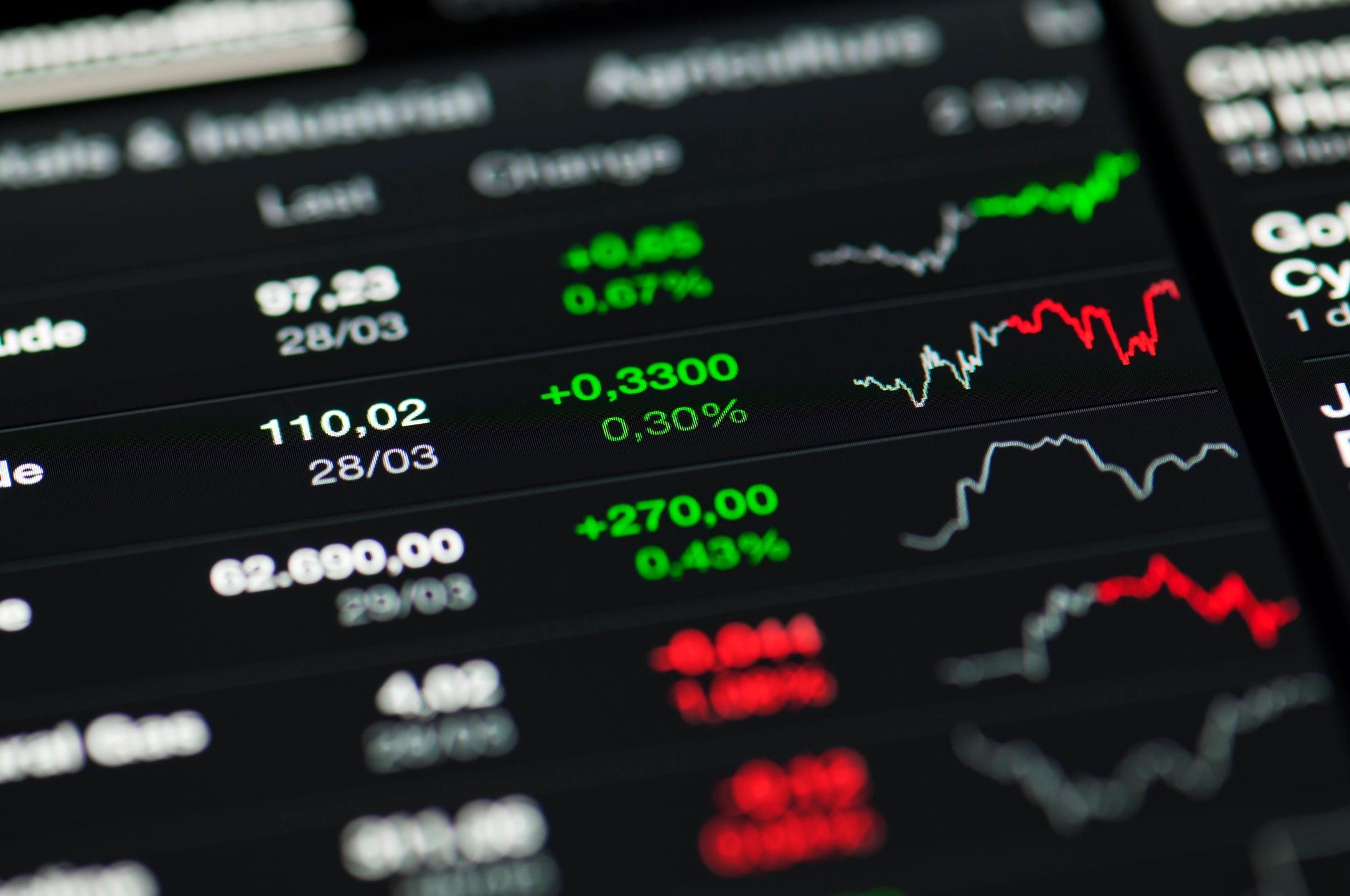Stock Investing Terms & Definitions:
Asset – anything you own that has value.
Asset Allocation – balancing your assets based on their type. This will give an investor a clear picture of the type of assets they possess and reveal any risk or shortcomings they may have.
Bond – a certificate representing a loan that you provide to a company or a government. In return, the borrower promises to pay interest on the amount and to repay the entire amount by a specified date.
Ask Price – the lowest amount of money that someone is willing to sell a security.
Bid Price – the highest amount that someone is willing to pay for a security.
Bear Market – a weak stock market where prices are falling.
Blue Chip Stock – stock in established companies that have a long history of good earnings & steady increasing dividends. The performance of 30 blue chip stocks is used in the Dow Jones Industrial Average.
Broker – a person or entity that buys and sells on an investors behalf.
Bull Market – a strong, growing stock market.
Capital Gain – the money gained from selling a stock for a higher price than you purchased it for.
Capital Loss – the money loss from selling a stock for a lower price than you bought it for,
Diversity – purchasing many different types of investments in an effort to reduce your overall market risk.
Dividend – a part of the company’s profits that get distributed to its’ shareholders. A company is NOT REQUIRED to provide a dividend at all, but it does make their stocks more desirable if they do.
Dow Jones Industrial Average – an average that is used as a snap shot of the overall health of the stock market. It contains the stock from 30 blue chip stocks.
Exchange – the place where securities are bought and sold. It can either be a physical location or a electronic.
Exchanged Traded Funds (ETFs) – an index fund that can be traded like a stock which allows investors to purchase a combination of many different companies that usually share a common feature. For example, if an investor wanted to invest in social media companies, but did not want to just invest in Twitter (or didn’t have the funds to invest in multiple companies as individual stocks) – he/she could buy an ETF that holds a percent of MANY social media companies.
Index – statistical measurement of a certain category of stocks.
Index Fund – a fund that invests in all the stocks that make up a particular index, like the S&P 500. Because most indexes are comprised of established companies, these funds tend to be relatively stable.
Going Long – purchasing a stock or bond with the intention of keeping it for a long time. This type of investing is recommended because, over the course of time, the stock market will produce higher yields than most other investments.
Going Short – purchasing a stock with the intent of selling it quickly. This type of investing is not recommended because it is extremely risky – typically “hot” stocks are very unstable and can fluctuate rapidly leaving investors on the losing end.
Limit Order – an order for a stock that sets a limit; to buy at or below a specified price, or to sell at or above a specified price. The order will only be bought or sold when it meets the criteria set by the investor.
Mutual Fund – a type of investment that combines funds from many investors to invest in a wide variety of securities.
NASDAQ – National Association of Securities Dealers Automated Quotations – the largest electronic stock market.
NYSE – New York Stock Exchange – one of the most famous stock exchanges which trades stocks from companies all over the US, and even some international companies as well.
Penny Stocks – low-priced (generally under $3 a share), higher risk stocks .
Portfolio – an investor complete inventory of investments. It is recommended that investors should avoid only have one type of security in their portfolio. Certain investments do better in different situations. It is always best to prepare for market fluctuations by having many type of these investments.
Prime Rate – the interest rate that banks give their most credit trustworthy clients – most other rates are defined from this rate. Example, the bank offered me a loan with an interest rate three points above Prime.
Prospectus – a detailed description of investments being offered – each company provides detailed information regarding their profits, expanses, share price, dividends, etc . so that investors can make educated decisions on whether or not they want to invest.
Quote – the last price that a stock was traded at.
Real Estate – a physical, tangible property (land or a building). Owners can either personally use the land and buildings they acquire, or they can use the property as a means of income through rent.
Real Estate Investment Trusts (REITs) – a real estate investment that is traded like a stock. It allows investors to make real estate investments without physically owning property. (There are REITs for hotel properties for example.)
Securities – investments where you either own part of a company (stocks) or are lending a company or government money (bonds).
Shares – a term for the amount of stock owned or offered. For example, he owns 50 shares of Apple.
Socially Responsible Investing – a relatively new way of investing which looks at certain values and practices of companies more than their earnings. Many investors feel more comfortable investing in companies that share their own personal views and beliefs. For example, some investors only want to invest in companies that are conscious of the environmental impact that they have on the planet.
Split – when a company divides their shares of stock – this does NOT increase their value, it only increases the QUANTITY. For example, if company XYZ has a two-for-one split on its $100 stock. If you owned 50 shares at $100, after the split, you would own 100 shares at $50 – you own more PHYSICAL shares, but your total investment amount remains the same at $500.
Spread – the difference between the ask price and the bid.
Standards & Poor’s 500 Index (S&P500) – an index of stocks issued by 500 large companies. It is another indicator to determine the markets overall health.
Stock – a physical share or part of company.
Symbol – a unique code of letters that identifies a US security.
Trade – the act of selling a security.
Volatility – a measure of risk based on the market’s performance.
Yield – the return on a stockholders investment.


